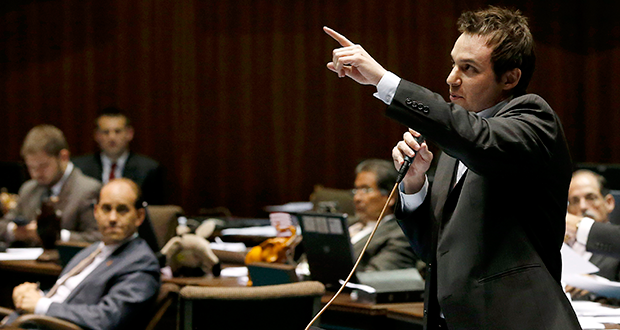9th Circuit upholds murder convictions linked to slain Border Patrol agent
Howard Fischer, Capitol Media Services//January 20, 2020//
9th Circuit upholds murder convictions linked to slain Border Patrol agent
Howard Fischer, Capitol Media Services//January 20, 2020//
This undated photo provided by U.S. Customs and Border Protection shows U.S. Border Patrol agent Brian A. Terry. Terry was fatally shot north of the Arizona-Mexico...













































